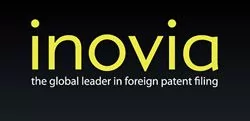The United States Patent Office (USPTO) and IP Australia (IPAU) recently extended the existing Patent Prosecution Highway (PPH) program between the two offices. Originally scheduled to expire this year, this agreement extends the PPH program until April 13, 2012.
The USPTO and IPAU also announced the creation of a bilateral PCT-PPH program. Under the previous PPH program, work-sharing was limited to search and examination results under the Paris Convention. With the PCT-PPH in place, favorable international search reports with written opinions or international preliminary examination reports are now available to expedite prosecution. Like the PPH, the PCT-PPH will also be in effect until April 13, 2012.
"We are pleased to extend and expand work sharing between the USPTO and IPAU," said Under Secretary of Commerce for Intellectual Property and Director of the USPTO David Kappos. "By including PCT international phase work, more work can be shared between our two offices. This will benefit applicants by reducing patent pendency and improving quality."
The USPTO and the National Board of Patents and Registration of Finland (NBPR) also announced the expansion of their PPH agreement. The previous agreement was limited to search and examination results under the Paris Convention. With this expansion, PCT documents, such as international search reports with written opinions or international preliminary examination reports, can be used to expedite and improve examination in the USPTO and NBPR.
"This agreement will amplify the work sharing potential between the two offices by including PCT international phase work," said Kappos.
Applicants can expect the creation and extension of more of these programs as patent offices around the world make efforts to improve patent examination quality and decrease backlog.
Additional information on the Patent Prosecution Highway and other work-sharing efforts can be found on our foreign filing blog.
The content of this article is intended to provide a general guide to the subject matter. Specialist advice should be sought about your specific circumstances.

